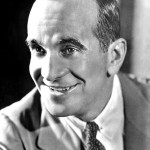It is not that I have a problem with gender bending per se. Having an office on a floor with only one female colleague and two bathrooms, one for men and one for women, truth be told some of the men cross gender lines and use the facilities designated for women.
It’s not that I fear reality television has infected Caitlyn Jenner’s outlook and that her new identity is one way to keep up with Kim Kardashian.
It’s not even that a medical profession, fully credentialed by the U.S. government and subsidiary agencies, approves of sex-change operations and allows licensed physicians to perform them.
It is — wait for it — the plasticity of identity at large in the United States. If you have a mother of Polish descent and a father with an Italian heritage, what are you? You get to choose (and if you’re like me, you likely choose Italian for the food and drink).
When it comes to religion Americans are equally happy with their freedom to choose a their personal identity. Evangelical Protestants are especially libertarian when it comes to their self-understanding. You can go to a liberal Presbyterian Church, a Pentecostal Church, a Roman Catholic parish, or even a Missouri Synod Lutheran church — maybe you don’t even go to church — and you can still classify yourself as an evangelical.
Of course, some of this owes to the character of religious freedom in the United States. No government agency regulates religious life and for that most believers across the religious traditions are grateful.
But evangelicalism bears a special burden when it comes to the plasticity of religious identity because for the average born-again believer the family in which you were reared, the church in which you grew up, the catechism you learned at home are not what determine your religious identity. Instead, what is decisive is your decision, in a moment of religious experience, to trust Christ. That is what makes you a Christian and it transcends all religious traditions and institutions.
Some evangelicals might say that this choice is only a response to a prior one by a sovereign God to work faith and repentance in a convert. But that veers pretty far in the direction of a Calvinistic understanding of conversion that leaves most evangelicals cold.
So the question is the degree to which evangelicals, who firmly believe in the power of individuals to choose their own identity, planted the seeds that bore fruit in Caitlyn Jenner. Don’t say that’s ridiculous. When the markers of holy baptism, the Lord’s Supper, God’s word preached and read, and church oversight are unimportant compared to the capacity of a believer to have a direct and personal relationship with Jesus and determine that such relationship is genuine, then recognizing the value of God given limits on the human body may also be discarded in the pursuit of the “real me.”












